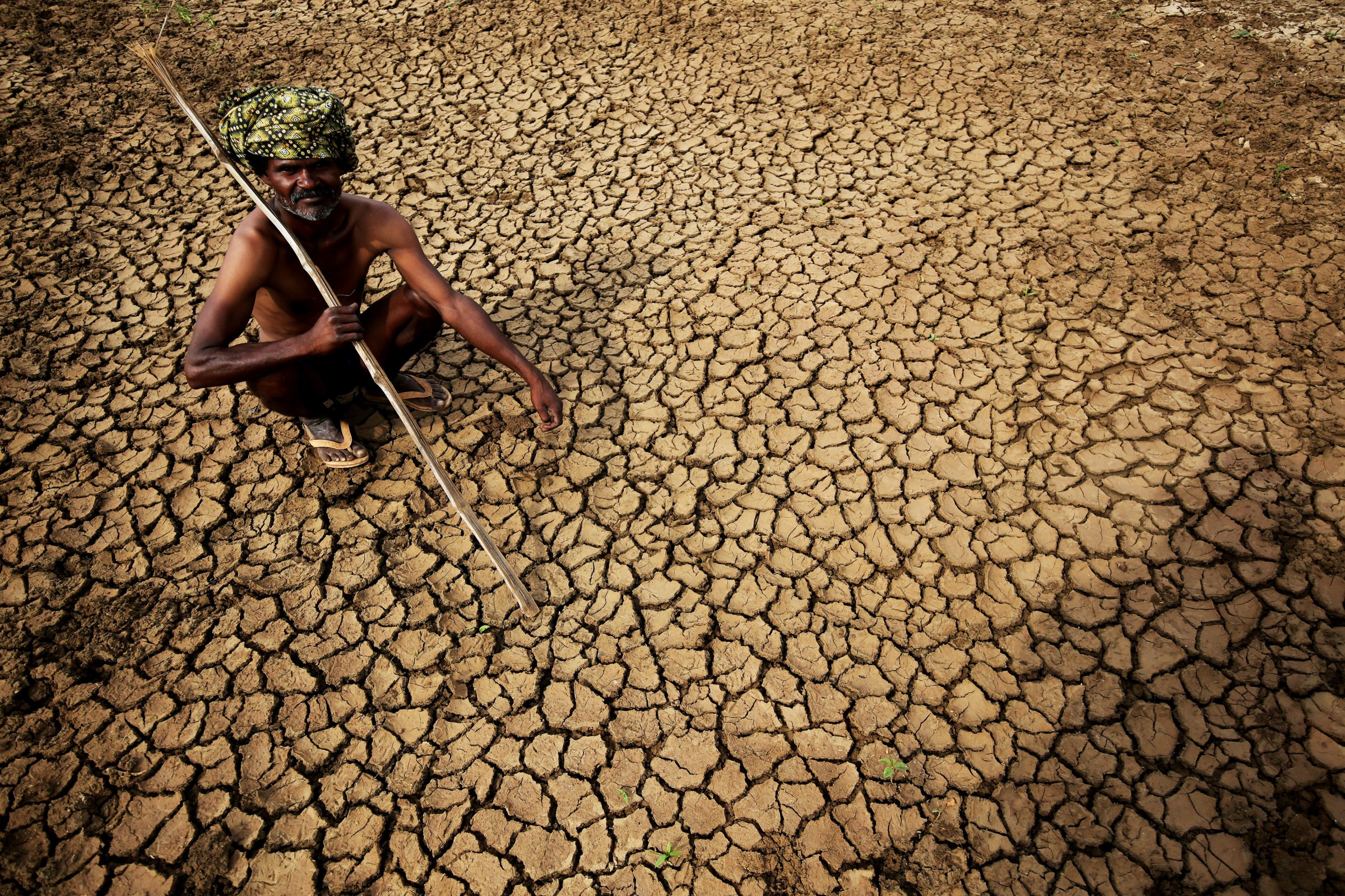
India’s heat wave has now claimed over 1,100 lives, with spiking temperatures melting roads in the capital, New Delhi, as the country awaits the arrival of the annual monsoon rains.
More than 850 people have succumbed in the southeastern Indian state of Andhra Pradesh, where extreme temperatures claimed more than 200 lives in one district alone. In neighboring Telangana state, at least 266 people have died, officials say. Deaths have also been reported in the eastern states of Odisha and West Bengal, and in Gujarat on the country’s western coast. With temperatures in parts of the country nearing 122°F (50°C), most of the deaths have been reported over the past week.
In New Delhi, where temperatures have been hovering around the 113°F (45°C) mark, the local Hindustan Times newspaper carried a picture on its front page on Tuesday of the disfigured white stripes of a pedestrian crossing as the asphalt on a city road melted in the extreme heat. Twitter users posted similar images.
Most of the victims of the heat wave sweeping across the country were elderly, homeless or construction workers forced to work outside even as temperatures climbed, the paper said.
Annual monsoon rains that are expected to hit southern India in the coming days will bring some relief — although it will take some time for the rains to reach northern India, Agence France-Presse reports. Even as the rains are forecast to arrive in the south of the country, meteorologists expect above normal temperatures in north and central India until the weekend, the Economic Times newspaper reports. In New Delhi, substantial relief is only expected to arrive in early June.
“The heat wave is likely to subside marginally on Thursday and Friday, when stray dust storms or thundershowers are expected. But maximum temperatures will not fall substantially,” B.P. Yadav, the director of the India Meteorological Department, told the Times of India.
As the country awaits the annual rains, authorities in Andhra Pradesh have stepped up efforts to stem the rise of heat-related deaths.
“The state government has taken up education programs through television and other media asking people not to venture outside without a cap, to drink water and take other measures,” Tulsi Rani, the state’s special commisioner for disaster management, said. “We have also requested NGOs and government organizations to open up drinking-water camps so that water will be readily available for all the people in the towns.”
More Must-Reads from TIME
- How Donald Trump Won
- The Best Inventions of 2024
- Why Sleep Is the Key to Living Longer
- Robert Zemeckis Just Wants to Move You
- How to Break 8 Toxic Communication Habits
- Nicola Coughlan Bet on Herself—And Won
- Why Vinegar Is So Good for You
- Meet TIME's Newest Class of Next Generation Leaders
Contact us at letters@time.com